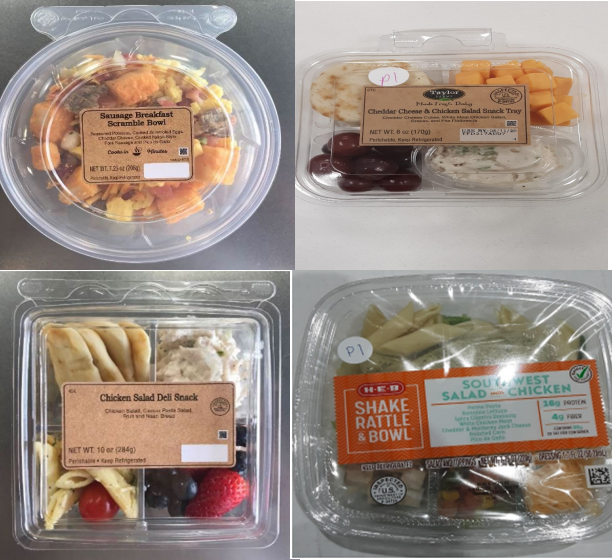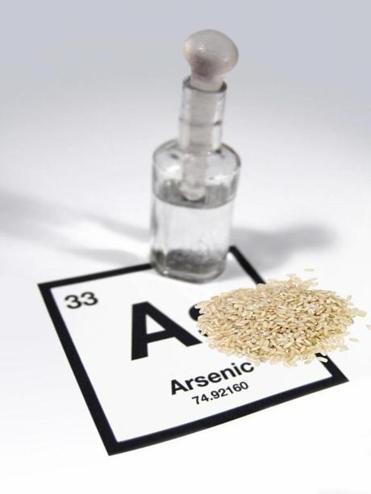Taylor Farms Texas, a Dallas, TX establishment, is voluntarily recalling products containing onions as a result of the expanded onion recall initiated by Thomson International, Inc., which resulted in a recall by Taylor Farms’ onion supplier. These recalls are due to concerns of the potential for contamination by Salmonella spp. The Taylor Farms recalled are Macaroni Salad, 9.9 oz. ; Rotini Pasta Salad, 10 oz.; Chicken Salad Croissant Sandwich, 6.25 oz.; Marketside Diced Yellow Onion 3/8″, 8 oz. tray; Marketside Diced Mirepoix, 10 oz. tray; Marketside Fajita Stir Fry, 8 oz. tray; and Chicken Salad Croissant Sandwich, 6.25 oz. Taylor Farms has not received any reports of illnesses to date associated with these recalled items. The recalled products were distributed from 07/30/2020 – 08/01/2020 in Walmart and Kroger. @ https://www.fda.gov/safety/recalls-market-withdrawals-safety-alerts/taylor-farms-issues-recall-products-containing-onions-because-possible-health-risk
ruth
Taylor Farms Texas, a Dallas, TX establishment, is voluntarily recalling products containing onions as a result of the expanded onion recall initiated by Thomson International, Inc., which resulted in a recall by Taylor Farms’ onion supplier. These recalls are due to concerns of the potential for co
ruth
The multistate outbreak of Salmonella Newport infections linked to onions produced by Thomson International, Inc. cause the USDA/FSIS to issue a public health alert for ready-to-eat (RTE) meat and poultry products containing the onions. Taylor Farms produced the RTE meat and poultry items on July 30 and 31, 2020. The products include 7.25-oz. plastic sealed container labeled as “Sausage Breakfast Scramble Bowl”; 6.2-oz. plastic sealed container labeled as “Taylor Farms Cheddar Cheese & Chicken Salad Snack Tray”; 41.35-oz. plastic bags containing “Chicken Salad”; 10-oz. plastic sealed container labeled as “Chicken Salad Deli Snack”; 7.75-oz. plastic sealed container labeled as “HEB Shake Rattle Bowl SOUTHWEST SALAD with CHICKEN”; and 17.25-oz. plastic sealed container labeled as “Marketside SOUTHWEST STYLE SALAD WITH CHICKEN.” These products were shipped to retail locations in Arkansas, Louisiana, Mississippi, Oklahoma, and Texas. @ https://www.fsis.usda.gov/wps/portal/fsis/home/!ut/p/a1/04_Sj9CPykssy0xPLMnMz0vMAfGjzOINAg3MDC2dDbwsfDxdDDz9AtyMgnyMDf3dDIAKIkEKcABHA0L6w_WjUJX4Wxq6AZWEBfp7OzsbWPgZwxTgtqIgN8Ig01FREQBCfym8/?1dmy&page=gov.usda.fsis.internet.topics&urile=wcm%3apath%3a%2FFSIS-Content%2Finternet%2Fmain%2Fnewsroom%2Fnews-releases-statements-and-transcripts%2Fnews-release-archives-by-year%2Farchive%2F2020%2Fpha-08052020-01
ruth
The FDA issued guidance finalizing the 2016 draft guidance for inorganic arsenic in infant rice cereals and identifying the agency’s intended sampling and enforcement approach. The guidance identifies an action level of 100 micrograms per kilogram (µg/kg) or 100 parts per billion (ppb), which protects the public health by reducing infants’ dietary exposure to inorganic arsenic. According to the FDA, this level is achievable by industry. FDA testing of infant rice cereals over the last decade suggests that manufacturers are already making significant progress in reaching this action level. The lowering of the arsenic level is achieved through good manufacturing practices, such as selective sourcing and testing of rice and rice-derived ingredients (e.g., rice flour) to ensure lower levels of inorganic arsenic. Results from sampling in 2018 show that 76% of samples were at or below the 100 ppb level, compared to 47% of samples tested in 2014 and 36% of samples tested between 2011-2013. @ https://www.fda.gov/news-events/fda-newsroom/fda-brief-fda-takes-action-limit-inorganic-arsenic-levels-infant-rice-cereal?utm_campaign=080520_PR_FDA%20Takes%20Action%20to%20Limit%20Inorganic%20Arsenic%20in%20Infant%20Rice%20Cereal&utm_medium=email&utm_source=Eloqua
FDA finalizes guidance that will help protect public health by reducing infants’ exposure to inorganic arsenic, associated with neurodevelopmental effects.
Dan-W
Food Safety News reports that researchers at Purdue University developed a treatment that infuses metal surfaces with naturally occurring antimicrobial peptides, creating surfaces that kill bacteria trying to attach to it. The technology applies primarily to food processing and cutting surfaces. The technique can reduce the risk of cross-contamination. The technology creates an oxidized metal surface with nanometer-wide and micrometer-deep cracks where antimicrobial peptides can be infused in these microscopic cracks with a simple wet process. The material stored in the cracks release over time, and the oxidation process also colors the material, which provides a visual indicator of the materials remaining antimicrobial resistance. The process works on stainless steel and titanium and can be used on a wide range of commercial metal alloys. The creators are now looking for partners to commercialize their technology. @ https://www.foodsafetynews.com/2020/08/new-technology-creates-hard-metal-surfaces-that-kill-bacteria/
A treatment to infuse hardened metal surfaces with naturally occurring antimicrobial peptides has been developed by researchers at Purdue University. In




